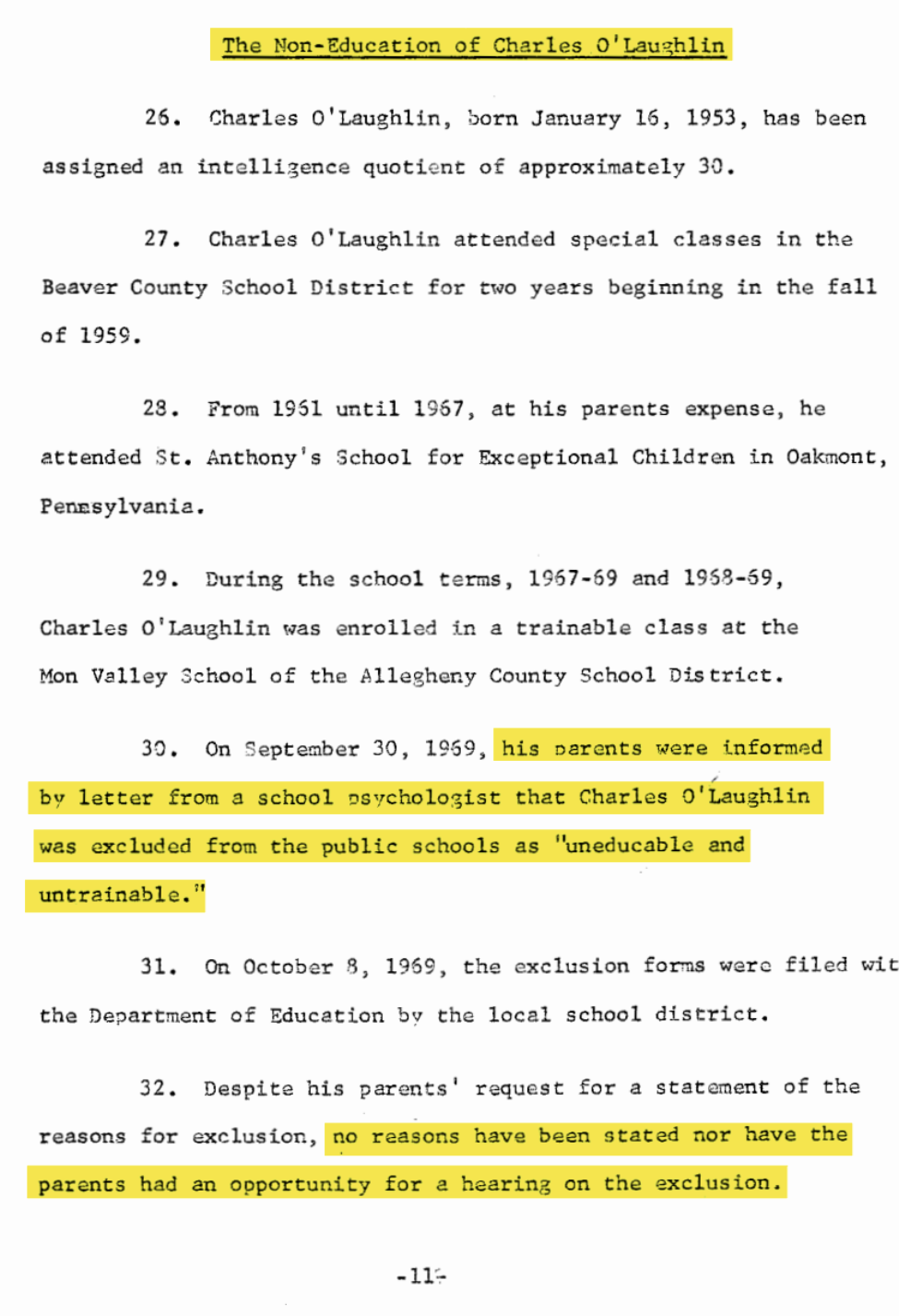"There are as many as 103,800 mentally retarded children of school age in the Commonwealth, only 50,043 of whom are in public school"
~ PARC v. Pennsylvania Complaint, January 7, 1971
PARC v. Pennsylvania:
Pioneering the Right to Education for Children with Cognitive Impairments

Charles O'Laughlin, named plaintiff in the PARC v. Pennsylvania complaint: Courtesy of Civil Rights Litigation Clearinghouse, 1971
In 1971, PARC filed a class action lawsuit against the Commonwealth of Pennsylvania, Pennsylvania Secretary of Welfare, Pennsylvania State Board of Education, and all Pennsylvania school districts. PARC contended that these defendants unconstitutionally denied cognitively impaired children a free public program of education in violation of the Fourteenth Amendment which guarantees all citizens equal protection under the law.
The plaintiff class, represented by PARC, was comprised of, "all mentally retarded persons, residents of the Commonwealth of Pennsylvania, who have been, are being, or may be denied access to a free public program of education and training while they are, or were, less than twenty-one years of age"(PARC v. Pennsylvania Order, Opinion, and Injunction, 1972).
PARC's allegations addressed three Pennsylvania public school code statutes, used by defendants to deny cognitively impaired children a free public program of education.